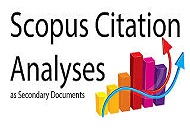Gambaran Implementasi Pendidikan Inklusif di Kota Mataram Dilihat dari Sikap Guru yang Mengajar
DOI:
https://doi.org/10.33394/jk.v3i2.477Keywords:
Pendidikan Inklusif, Sikap GuruAbstract
References
Avramidis, E., & Norwich, B. (2002). Teachers’ attitudes towards integration / inclusion: a review of the literature. European Journal of Special Needs Education, 17 (2), 129-147.
Elisa, S., & Wrastari, A. T. (2013). Sikap guru terhadap pendidikan inklusif ditinjau dari faktor pembentuk sikap. Jurnal Psikologi Perkembangan dan Pendidikan, 2 (01), 1-10. Ilahi, M.T. (2013). Pendidikan inklusif (Konsep & Aplikasi). Jogjakarta: AR-RUZZ MEDIA. Kustawan, D. (2013). Manajemen pendidikan inklusif (Kiat sukses mengelola pendidikan inklusif di sekolah umum & kejuruan). Jakarta timur: PT. Luxima metro media. Lasarie,E., & Gusniarty, U. (2009). Hubungan antara self-efficacy guru dengan sikap terhadap program pendidikan inklusif bagi anak berkebutuhan khusus. Jurnal Psikologia, 4 (2), 42-48. Mahat, M. (2008). The development of a psychometrically-sound instrument to measure teachers’ multidimensional attitudes toward inclusive education. International Journal of Special Education, 23 (1), 82-92. Mudjito., Harizal. & Elfindri. (2012). Pendidikan inklusif. Jakarta: Baduose Media Jakarta. Mudjito (2013).Pedoman umum penyelenggaraan pendidikan inklusif (sesuai Permendiknas No. 70 tahun 2009). Jakarta: Direktorat Jendral Pendidikan Dasar.
Ni’matuzahror dan Nurhamida,Y. (2016). Individu berkebutuhan khusus dan pendidikan inklusif. Malang. UMM Press.
Downloads
Published
How to Cite
Issue
Section
Citation Check
License
License and Publishing AgreementIn submitting the manuscript to the journal, the authors certify that:
- They are authorized by their co-authors to enter into these arrangements.
- The work described has not been formally published before, except in the form of an abstract or as part of a published lecture, review, thesis, or overlay journal.
- That it is not under consideration for publication elsewhere,
- That its publication has been approved by all the author(s) and by the responsible authorities – tacitly or explicitly – of the institutes where the work has been carried out.
- They secure the right to reproduce any material that has already been published or copyrighted elsewhere.
- They agree to the following license and publishing agreement.
Authors who publish with JK agree to the following terms:
- Authors retain copyright and grant the journal right of first publication with the work simultaneously licensed under a Creative Commons Attribution License (CC BY-SA 4.0) that allows others to share the work with an acknowledgment of the work's authorship and initial publication in this journal.Â
- Authors are able to enter into separate, additional contractual arrangements for the non-exclusive distribution of the journal's published version of the work (e.g., post it to an institutional repository or publish it in a book), with an acknowledgment of its initial publication in this journal.
- Authors are permitted and encouraged to post their work online (e.g., in institutional repositories or on their website) prior to and during the submission process, as it can lead to productive exchanges, as well as earlier and greater citation of published work.
- Open Data Commons Attribution License, http://www.opendatacommons.org/licenses/by/1.0/ (default)

This work is licensed under a Creative Commons Attribution-ShareAlike 4.0 International License.








